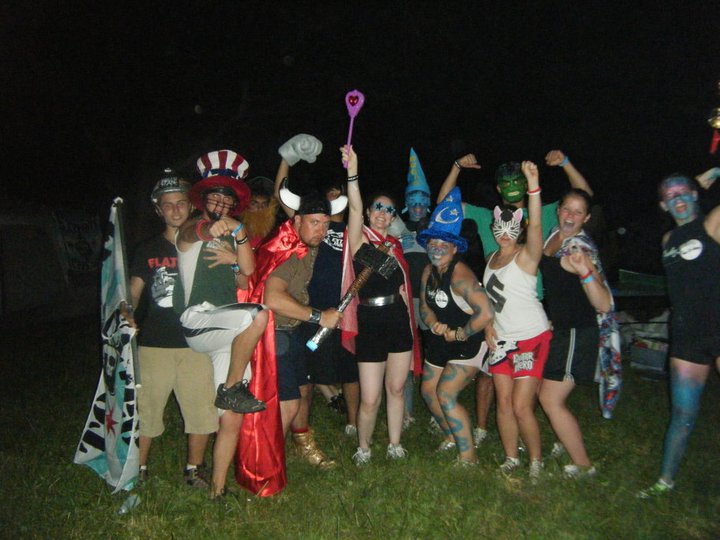Awhile back, I was reading Matthew 21:33-46 with some folks, and one of them pointed out that there “sure is a lot of death” in this particular Scripture passage. I think that part of the reason that I like the Liturgical calendar so much is that it forces us to work through passages that we might not necessarily choose ourselves, passages that might not make us comfortable. A lot of the Scriptures should make us feel uneasy, because in them, Jesus openly addresses the sins of our heart.
In order to understand this particular parable of Jesus, we actually have to step back a bit and look at the Scriptures in their context.
At the beginning of this chapter, Jesus has entered into Jerusalem with the procession of a king. This is an overarching theme throughout the Gospel of Matthew: the Kingship of Jesus. At the outset of the chapter, Jesus issues a royal command, to fetch a specific donkey and its colt. He does so with the intent to process into the city on the donkey, which kings did as a sign of peace.
And as people realize what Jesus is doing in this symbolic act, they accordingly begin to spread their garments and wave palm braches before him as in royal processions, shouting, “Blessed is he who comes in the name of the Lord.” Through these actions, Jesus is actually receiving royal acclaim. You see, this humble royal entry at Palm Sunday is no accident on Jesus’ part; it is actually meant to be something of a lived-out parable.
This was Jesus definitively presenting himself to his people as the promised Messiah. He was outwardly making an appeal for the trust, obedience, and homage of human hearts around him. Likewise, he was also warning the rulers that in rejecting him, they would be rejecting their King.
This entrance on the Old Streets of Jerusalem is meant to be symbolic of a future coming event. Jesus knows that one day, he will appear in glory, and those who choose to accept him now and offer him the willing praise of their hearts will join him in the blessedness of his perfected Kingdom. But those who don’t, well, that isn’t as easy for us to hear…
And so in the Scriptures, Jesus goes right from this royal pageantry directly to the Temple, flipping over tables, casting out the money-changers who were openly defrauding the people of God. This eventually leads him to a confrontation with the religious authorities.
In essence, the authorities ask Jesus, “With what authority are you doing these things?” But the question isn’t actually asked in sincerity; it is asked as a way to trap Jesus into verbalizing a response that would politically condemn him. Recognizing this, Jesus then turns the tables on the religious authorities by exposing their trap and laying bare the hypocrisy that the religious officials are dishonest and that they don’t believe that his power is of God. And Jesus does this in a way for all to see.
But Jesus doesn’t stop there. He then goes on to tell three parables of judgment, indicating the fate these religious authorities will have if they continue in their hypocritical ways. Our passage for today is the second of the three parables, and this particular parable is so direct that even the enemies of Jesus can understand its meaning clearly.
- The landowner is God the Father.
- The vineyard is Israel.
- The tenants are the religious leaders to whom stewardship and care has been entrusted.
- The slaves are the prophets of God, sent to summon the people to repent and to render to God the fruits of righteousness and goodness.
- And the Son is Jesus himself.
So what Jesus is saying to these religious leaders is that is, “God gave you this world to cultivate and steward for good, and instead of seeking God’s goodness, you’ve simply sought your own gain. Because of this, the kingdom of God will be taken away from you and given to a people that produce the fruits of the kingdom.”
But when corruption comes from leadership in the church–be they pastors or laypeople who are actively working against the purposes of God–they prevent themselves from flourishing and they lose the blessings that come with working alongside God.
I have to tell you, I don’t think that this passage just has implications for the religious leaders of Jesus’ day. I think it impacts you and me as well, and here is why: God always aids those who strive to produce good for the Kingdom. If God is good, that means that we should always be praying and living… Thy Kingdom Come…
But when corruption comes from leadership in the church–be they pastors or laypeople who are actively working against the purposes of God–they prevent themselves from flourishing and they lose the blessings that come with working alongside God.
When we think about corruption, we immediately think about church scandal, but this parable is implying much more, because later on in the Bible, the role of the tenants is expanded to all of humanity. So Jesus’ parable, then, is extended to each one of us as a challenge to say, “Are you really using what God has privileged you with, blessed you with, to better humanity and the world?” For each of us, that blessing and responsibility may look very different.

Ok, we get it: we are called to be good stewards. But to my friend’s earlier observation, why all this emphasis on death in the parable? I heard this story that I think explain it well:
A man who has just died comes to the Pearly Gates and runs into Saint Peter. Saint Peter says, “Tell me what good things you did in your lifetime.” The man thinks for awhile and says, “Well… I can tell you about one thing I did. There was this huge biker who was stealing this old woman’s purse. I saw him stealing it and I grabbed him, and with all my might I threw him to the ground in order to help the woman whose purse was being stolen.” Saint Peter is impressed. “Wow! When did that happen?” The man replies, “Oh about two or three minutes ago.” (Think about it.)
To Jesus’ point, time is running out.
Death is swift and unexpected, and it is coming for each of us. When we are confronted with that fact, we are confronted by a reality that there is no time like the present to lean into Jesus and be the good stewards we are called to be.
Christian stewardship can look like so many things to different people because God’s blessings are often so diverse and wonderful to humanity that it’s impossible to put them in a box. So considering that fact, I want to just share one of these stewardship gifts that God has blessed me with in my life to give you a tangible example.
Five years ago, one of my dear sweet youth group members from my first call was killed in a head-on car crash. One thing I try to encourage folks to do when they lose a loved one is to write down as much as they can in the moment. This young man’s life was a blessing to me, and this is an excerpt of what I wrote many years ago the day I found out that he had died.
“In our time in ministry, Jeannelle and I have “adopted” many youth. Today, one of them–Tyler Kuhn–was killed in a car crash. It is days like this when you think that your heart has been ripped from your chest. There are not enough tears that can be shed… Mourning runs deep. In this moment, it feels like I simply will never get over the loss. The insensitive might think that I am being over-dramatic with such a statement, but that would only be because they never met Tyler.
If Michelangelo’s art came to perfection on the ceiling of the Sistine Chapel, then my youth ministry equivalency bloomed amidst video games and dodgeball with those boys.
“Tyler started coming to church back in the day not by some masterful act of ministry, but because he was enticed by his friends and brother, who were attending our church. The array of Co-Ed Youth Church League Softball and video games provided the initial draw, and when Tyler first came in he was pretty raw. It was clear that he wasn’t foreign to the concept of God, but he certainly wasn’t all aboard on the J-train either. I got the impression that Tyler liked the competition that the pack of boys and supporting cast of girls that he hung out with were stirring up in our youth group.
“If Michelangelo’s art came to perfection on the ceiling of the Sistine Chapel, then my youth ministry equivalency bloomed amidst video games and dodgeball with those boys. Tyler and I spent hours doing what most would define as “stupid stuff” together. One day, we spent over an hour (maybe more) just throwing footballs the length of the gym, trying to make them into the basketball hoop. It was ridiculous. It made no sense. But we cheered and jeered each other as he proceeded to school me in the made-up game.
“Somehow, in the midst of all of that craziness, God was on the scene. We weren’t being traditionally religious in any way. We were just hanging out. But Tyler started showing up more and more and more.

“Eventually, he started showing up on Sundays when I preached. I might have offhand invited him to church on Sunday–I can’t remember–but what I do remember was him showing up and what it meant to me. After that, he just was around all of the time. Eventually, the day came when God called me to another church, and while it genuinely broke my heart to have to move away from my Greenville church family, in Jesus, I could do no other.
“I could have predicted how most all of the kids would react when the news was broken to them that I was leaving. Yet two of them, I never would have guessed. One was one of our younger girls, and she just lost it. She was so sweet and just started bawling one morning in Sunday school to the point where I almost said, “Forget it, God, I can’t do it.” The other was Tyler. He was genuinely sullen, which was not his nature. He still would hang around with me, but he didn’t understand why I was leaving, and I could tell. No jokes, no Tyler heckling laugh. Sullen.
“We rode around in my car together one day and he made some offhand remark about how he was mad because I was leaving. I couldn’t let the comment go. I remember quickly telling him something like, “You know just because I am not going to live here, doesn’t mean I’ll ever leave you. If God wasn’t calling me to go I wouldn’t. You all mean too much to me. You know I love you right?” He told me he knew and he loved me back. He never gave me a hard time about it again.
“Almost a year later, I returned to the church for a funeral. As soon as I pulled into the parking lot at First Presbyterian Church, Tyler came running from the side doors with a bunch of the boys, screaming my name, and he ran right at me, up to me, and embraced me only to be to be followed by the herd. In that moment, I was extremely honored, emotionally touched. I was choked up. There are not many instances in my life that I can say that I have felt as loved as I did in that moment. It was like Christ was hugging me. People talk about what it means to be blessed, but experiencing blessing actively, presently, is almost indescribable. That night, I went back to my room where I was staying and wept. I knew that these kids all understood Jesus fully in that moment of joy. That moment started with Tyler.
Don’t wait to tell people you love them. Be quick to lend a helping hand. Whatever opportunity God puts before you, act on it. Visit that neighbor, give that gift, offer forgiveness, seek justice, do good, give praise, foster joy, recognizing amidst the majesty of it all that Jesus is the cornerstone that joins us to God’s Kingdom.
“After the move, Tyler and I would play Xbox online together and with the other guys, and he would always talk smack as he threw down. I was terrible compared to him, but he always wanted me on his team. Those times weren’t even about what was being said over our geekified headsets; it was about spending time together, even if it was semi-virtual time. How can two people be in each other’s presence even when they are hundreds of miles apart? My only explanation is the Holy Spirit of God uniting us.
“Tyler was loyal, unwavering. It was as if in that day in the car together before I moved, we took vows with one another; we made some kind of familial pact. It is the least trivial thing that I can articulate. For someone who is known for his joking and his laughter, for his hilarious antics, known for his joy, all of my memories of him are surrounded by a mutual acknowledgement of the importance of the moments that we shared together. As such, what I have come to realize is that Tyler is a true disciple of Jesus.

“A couple of years later, at the Cornerstone Music Festival, after defending our third year dodgeball tournament title, Tyler shared his hopes and dreams for the future with me. He spent time praying for others, serving in the prayer tent that we were helping to host for the Festival. He was the most focused that I have ever seen him. I couldn’t help but think what wonderful things God must have in store for him. I couldn’t help but look at him and marvel how deep this young man had become. What joy. It made me realize that we should never underestimate the impact that we are making in other people’s lives. The pursuit of Christ–in love–should always be what matters most. It has made all the difference for Tyler. I truly believe if anyone was prepared to experience heaven now, Tyler was ready.”
Folks, the time that we have right now is precious. It’s invaluable. Don’t waste it. We have to be sure to live our lives with a sense of spiritual of urgency. Because, In a very real sense, it is now or never.
Don’t wait to tell people you love them. Be quick to lend a helping hand. Whatever opportunity God puts before you, act on it. Visit that neighbor, give that gift, offer forgiveness, seek justice, do good, give praise, foster joy, recognizing amidst the majesty of it all that Jesus is the cornerstone that joins us to God’s Kingdom. A Kingdom that you have the privilege to help bring into existence.
For we…we are the people of God.
Reality Changing Observations:
1. Who are the people you need to tell today that you love them, and what is stopping you from doing so?
2. How are you using what God has privileged and blessed you with to better humanity and the world?
3. How does your day-to-day life exhibit spiritual urgency?





